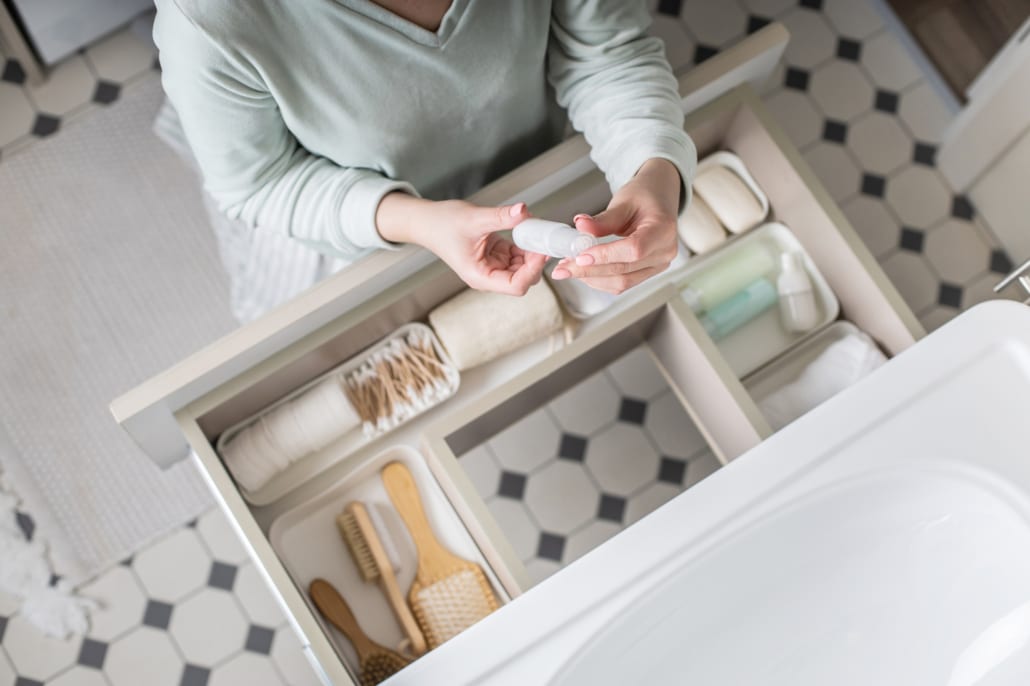Do Personal Care Products Expire?
The life-changing magic of tidying up
We all have too much stuff – in our closets, desks, basements and attics. Nobody wants to throw something away that might come in handy later. I’m no Marie Kondo (just ask anyone who has seen my desk!), but I can tell you that most of us keep personal care products far longer than they are safe and effective.
 Before you pack for your next vacation, look at what you have and discard everything that has expired. Make a habit of doing this regularly. Currently there are no U.S. laws requiring expiration dates on cosmetics. However, the FDA holds cosmetic manufacturers responsible for ensuring the safety of their products and determining a product’s shelf life. Some manufacturers will include a Period After Opening (PAO) symbol printed on their cosmetic product. This is a tiny image of an open jar with a number on it that reflects the number of months a product is stable and safe for use after opening. Expiration dates and PAO are not synonymous. An expiration date refers to the shelf life of a product in its “unopened” primary container when maintained under the conditions of storage indicated on the product’s label.
Before you pack for your next vacation, look at what you have and discard everything that has expired. Make a habit of doing this regularly. Currently there are no U.S. laws requiring expiration dates on cosmetics. However, the FDA holds cosmetic manufacturers responsible for ensuring the safety of their products and determining a product’s shelf life. Some manufacturers will include a Period After Opening (PAO) symbol printed on their cosmetic product. This is a tiny image of an open jar with a number on it that reflects the number of months a product is stable and safe for use after opening. Expiration dates and PAO are not synonymous. An expiration date refers to the shelf life of a product in its “unopened” primary container when maintained under the conditions of storage indicated on the product’s label.
Generally eye-area cosmetics tend to have shorter shelf lives due to the risk of serious eye infections, whereas lipsticks can be used longer. Most manufacturers recommend discarding mascara in 2-4 months because the wand can become contaminated. It is important to be aware that the PAO is a ”rule of thumb,” and that a product may expire sooner if it has not been properly stored (that tube of sunscreen that you forgot in your car becomes unstable in the heat and the cosmetics in the bathroom are exposed to harmful organisms). If a product looks different from when it was first opened, if there is any change in texture, color, smell or if the product begins to separate, it should be thrown out. Don’t try to rehydrate dried out or cracked products, just send them to the waste basket.
Not all skin care products are regulated as cosmetics. Sunscreens and
Source:
https://www.fda.gov/cosmetics/cosmetics-labeling/shelf-life-and-expiration-dating-cosmetics





